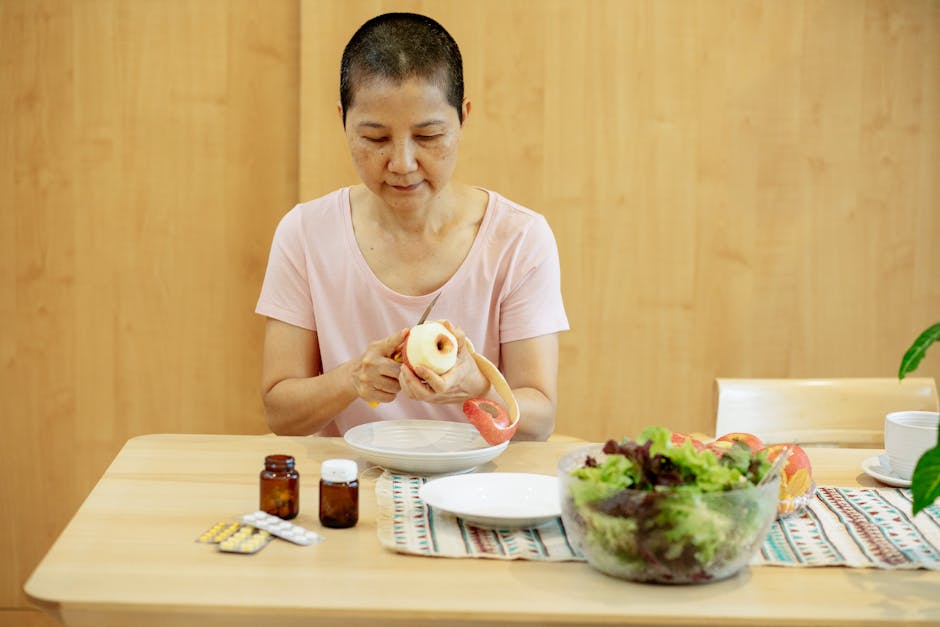The Best Diets for Women as They Age: Fueling Health and Vitality in Every Decade
As women age, their nutritional needs evolve. What worked in your twenties might not be optimal in your fifties, and what sustains you in your fifties may need adjustments in your seventies. Understanding these changes and adapting your diet accordingly is crucial for maintaining good health, energy levels, and overall well-being. This comprehensive guide explores the best dietary approaches for women at different life stages, focusing on nutrient-rich foods, mindful eating habits, and practical strategies to support optimal health throughout the aging process.
Understanding the Changing Nutritional Needs of Women
Hormonal shifts, metabolic changes, and decreased physical activity are just some of the factors that impact nutritional requirements as women age. Menopause, for example, significantly alters hormone production, potentially leading to weight gain, bone loss, and increased risk of heart disease. Therefore, a diet tailored to these changes becomes increasingly important.
Key Nutritional Concerns as Women Age:
- Bone Health: Calcium and vitamin D are essential for maintaining strong bones and preventing osteoporosis.
- Heart Health: A diet rich in fruits, vegetables, and whole grains, while limiting saturated and trans fats, is crucial for cardiovascular health.
- Weight Management: Metabolism slows with age, making it easier to gain weight. A balanced diet and regular exercise are vital for weight management.
- Energy Levels: Adequate intake of complex carbohydrates, protein, and healthy fats is crucial for sustaining energy levels.
- Cognitive Function: Nutrients like omega-3 fatty acids, antioxidants, and B vitamins play a role in maintaining cognitive health.
Best Diets for Women in Their 30s and 40s
During this period, many women are balancing careers, families, and personal lives. Maintaining a healthy diet can sometimes feel challenging. Focusing on nutrient-dense foods and minimizing processed foods is key.

Dietary Recommendations:
- Mediterranean Diet: Rich in fruits, vegetables, whole grains, legumes, nuts, seeds, and olive oil. This diet is associated with lower risks of heart disease, type 2 diabetes, and certain cancers.
- DASH Diet: Designed to lower blood pressure, this diet emphasizes fruits, vegetables, whole grains, and lean protein. It’s beneficial for heart health and overall well-being.
- Prioritize Whole Foods: Choose whole, unprocessed foods over processed snacks and fast food. This helps maintain stable blood sugar levels and provides essential nutrients.
- Hydration: Drink plenty of water throughout the day to support bodily functions and maintain energy levels.
Best Diets for Women in Their 50s and 60s (Peri-menopause and Menopause)
Menopause brings significant hormonal changes, often leading to weight gain, hot flashes, and mood swings. Dietary adjustments are crucial to manage these symptoms and maintain overall health.
Dietary Recommendations:
- Focus on Calcium and Vitamin D: Increase intake of calcium-rich foods like dairy, leafy greens, and fortified foods. Ensure adequate vitamin D intake through sunlight exposure or supplements.
- Manage Weight: Maintain a healthy weight through balanced eating and regular exercise to reduce the risk of chronic diseases.
- Phytoestrogens: Foods like soybeans, flaxseeds, and lentils contain phytoestrogens, which may help alleviate menopausal symptoms. However, more research is needed.
- Fiber-Rich Foods: Increase fiber intake to regulate blood sugar levels and promote digestive health.
- Limit Processed Foods and Sugar: These can exacerbate menopausal symptoms and contribute to weight gain.
Best Diets for Women in Their 70s and Beyond
As women age, maintaining a healthy weight, preventing muscle loss, and ensuring adequate nutrient intake becomes even more critical. Focusing on ease of chewing and digestion is important as well.

Dietary Recommendations:
- Easy-to-Digest Foods: Choose soft, easily chewed foods to reduce digestive discomfort.
- Nutrient-Dense Foods: Prioritize foods rich in essential vitamins and minerals, even in smaller portions.
- Protein Intake: Maintain adequate protein intake to preserve muscle mass and prevent age-related muscle loss (sarcopenia).
- Hydration: Adequate hydration is crucial for overall health, especially as we age. Dehydration can lead to confusion and other health problems.
- Consider Supplements: Talk to your doctor about the need for supplements, especially calcium, vitamin D, and B vitamins.
Important Considerations for All Ages
Regardless of age, several dietary principles apply to all women:
- Portion Control: Be mindful of portion sizes to manage weight and prevent overeating.
- Regular Meals: Eat regular meals and snacks to maintain energy levels and prevent blood sugar crashes.
- Mindful Eating: Pay attention to your body’s hunger and fullness cues.
- Variety: Eat a variety of fruits, vegetables, whole grains, lean proteins, and healthy fats to ensure adequate nutrient intake.
- Consult a Healthcare Professional: Talk to your doctor or a registered dietitian to personalize your dietary plan based on your individual health needs and preferences.
The Role of Exercise and Lifestyle
Diet alone isn’t enough for optimal health. Regular physical activity is crucial for maintaining a healthy weight, preventing chronic diseases, and improving overall well-being. Aim for at least 150 minutes of moderate-intensity aerobic activity or 75 minutes of vigorous-intensity aerobic activity per week, along with muscle-strengthening activities twice a week.
In addition to diet and exercise, prioritize stress management techniques like yoga, meditation, or spending time in nature. Adequate sleep is also essential for both physical and mental health. A holistic approach that combines healthy eating, regular exercise, stress management, and sufficient sleep is the most effective way to support your health and vitality as you age.

Debunking Common Diet Myths for Aging Women
Many misconceptions surround dieting and aging. Let’s debunk some common myths:
- Myth: You need to drastically cut calories as you age. Reality: Calorie needs may decrease slightly, but drastically cutting calories can be detrimental, leading to nutrient deficiencies and muscle loss.
- Myth: Low-fat diets are always best. Reality: Healthy fats are essential for hormone production, brain function, and overall health. Focus on healthy fats like avocados, nuts, and olive oil.
- Myth: All carbohydrates are bad. Reality: Complex carbohydrates, such as whole grains and fruits, are important sources of energy and fiber.
- Myth: Dieting is the only way to lose weight. Reality: Weight management is a combination of balanced eating and regular exercise.
Conclusion: Embracing a Lifelong Approach to Healthy Eating
The best diet for women as they age is not a one-size-fits-all approach. It’s a journey of understanding your evolving needs, making informed choices, and prioritizing overall well-being. By focusing on nutrient-rich foods, mindful eating habits, and a holistic lifestyle that incorporates regular exercise and stress management, women can fuel their health and vitality throughout every decade of their lives. Remember to consult with your healthcare provider or a registered dietitian to create a personalized plan that meets your specific needs and preferences.

